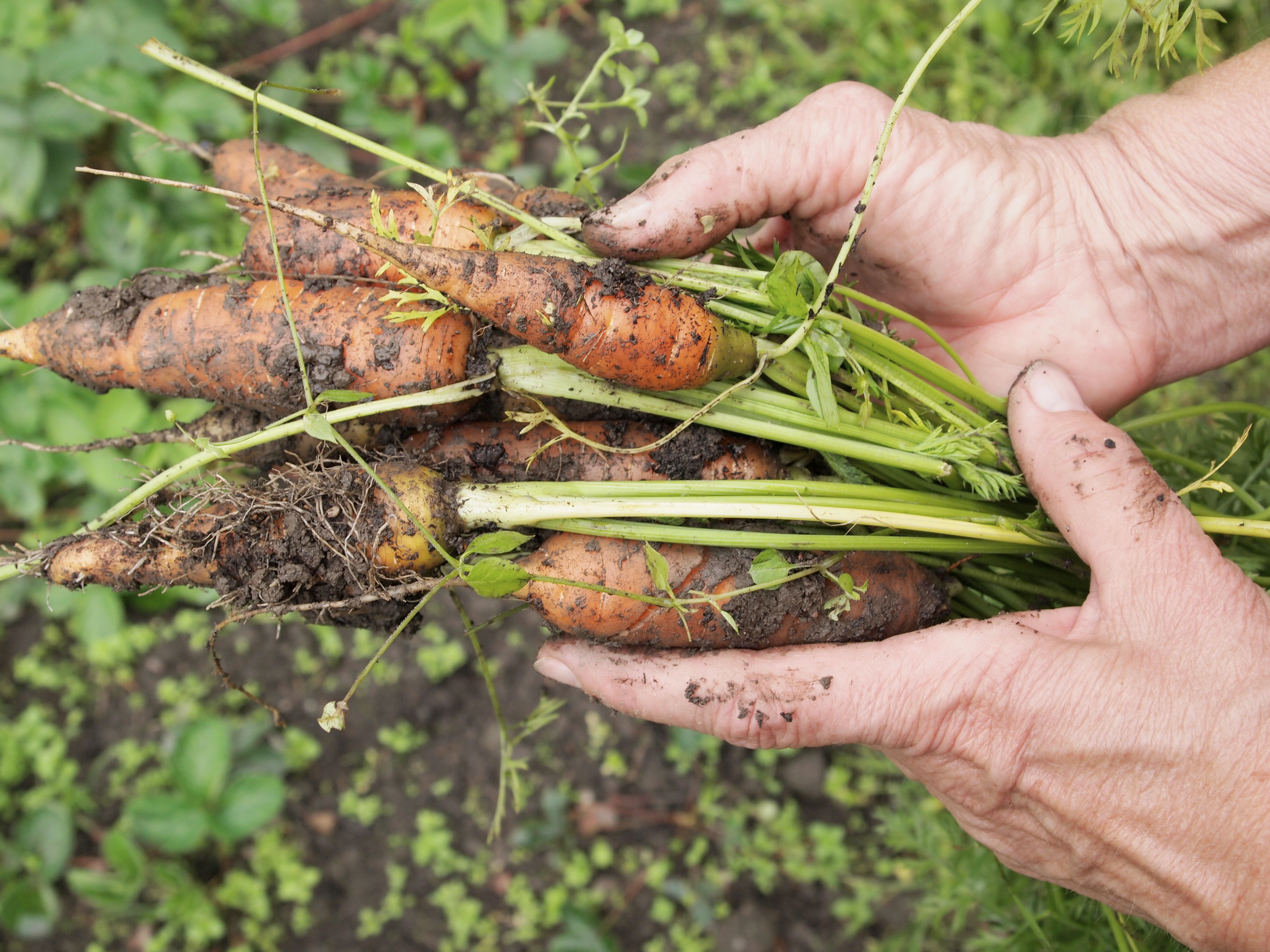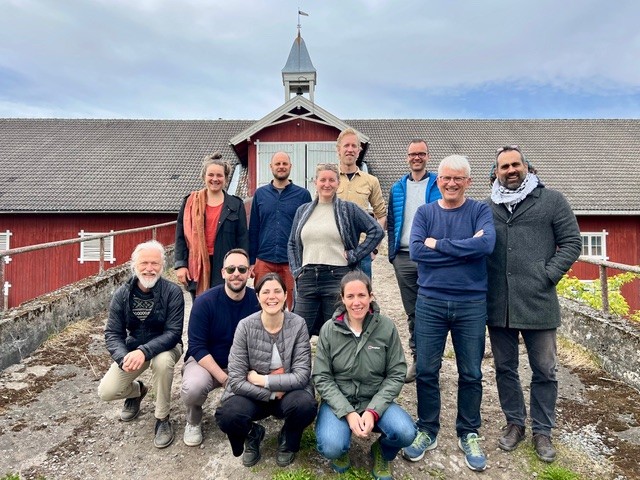
LIFT
New EU project unites five countries in Living Labs network for agroecological transformation of food systems through public procurement
At a time when food systems contribute to both climate change and environmental degradation, the LIFT project launches an innovative research collaboration that will use public procurement as leverage for agroecological transformation of agricultural landscapes in Europe. Co-funded by the European Union and national/regional funding bodies participating in the Agroecology Partnership, the project receives €1.5 million in funding from the EU's Horizon Europe program and will establish Living Labs in five European countries.
The project consortium met for the first time on May 7-9 at Fokhol Farm in Stange, Norway, a place that itself practices according to agroecological principles through its biodynamic farming and regional direct sales.
"Today's food systems are one of the main drivers of climate change and environmental degradation, while also creating challenges for the economic and social viability of farming communities," says project coordinator Professor Tor Arvid Breland from the Norwegian University of Life Sciences (NMBU). "Although agroecological principles have known potential to address these shortcomings, they are insufficiently implemented. The LIFT project tackles this challenge in a new way by taking a food systems approach and focusing on public procurement from farms where compliance with the ecological principles and processes we all ultimately depend on, is emphasised."


What are Living Labs?
The LIFT project uses a transdisciplinary and participatory approach through so-called Living Labs. These function as real-world experimental environments where various actors - farmers, advisors, public procurers, consumers, and decision-makers - collaborate to develop place-based solutions.
Each Living Lab follows a structured process where participants map the current situation, create visions for the future, identify supporting and hindering factors, develop action plans, and evaluate results in iterative cycles.
"Since approximately half of all food in Europe is served in public institutions such as schools and hospitals, there is an enormous leverage point for change," explains Breland. "The basic assumption that 'eating is an agricultural act', as Wendell Berry put it, means that our food choices strongly influence the environmental footprint of the food system. By reconnecting consumers to the landscapes where their food is produced, and using public procurement as a catalyst, we can unlock the potential of agroecological transformation."
"A crucial aspect of LIFT is that we will investigate to what extent changes in public procurement practices can support the urgently needed shifts in our food and farming systems. Six Living Labs across five countries will co-develop a framework to monitor and evaluate progress in agroecological transformation at the landscape level – one that is sensitive to diverse local contexts while enabling robust cross-site comparisons." says Dr. Nina Isabella Moeller from the University of Southern Denmark.
Three principal objectives
The project has the following three main objectives:
- Facilitate multi-stakeholder Living Labs
Bring together actors from the entire food chain to develop agroecologically sound production, delivery, procurement, and consumption of food in regional landscapes and connect these in an international network of Living Labs
- Identify drivers and barriers
Explore factors that support or hinder the transition to more collaborative, regional, and agroecologically sound food systems, and to develop concepts and tools for improving such a transition.
- Develop a participatory framework
Develop a framework to evaluate the impact of the Living Labs activities on the implementation of agroecological principles and practices as well as on the ecological, economic, and social sustainability of farms, landscapes and the food system.
The project builds on Living Labs in southwestern (Portugal, Spain) and northern (Sweden, Denmark, Norway) Europe, enabling learning between regions with different conditions.
"To strengthen the sustainability of food systems, we need a shift from decoupling and competition between actors in the value-chain to increased proximity and collaboration," adds Breland. "This is a complex challenge, a 'wicked problem', where different perspectives must meet and find common paths forward."
The tools and solutions developed will be disseminated through "lighthouse cases", successful examples of agroecological transformation, and via the learning platform developed within the Agroecology for Europe project.

Partners
The LIFT project, running from May 2025 to April 2028, is coordinated by the Norwegian University of Life Sciences (NMBU) and involves partners from:
- University of Lisbon - Association for Research and Development of Sciences (Portugal)
- Svensk Kolinlagring (Sweden)
- University of Córdoba (Spain)
- University of Southern Denmark (Denmark)
- Miljömatematik Malmö AB (Sweden) – responsible for communication and knowledge dissemination
- Halmstad University (Sweden)
- University of Extremadura (Spain)
For more information:
Associate Professor Nina Isabella Moeller
University of Southern Denmark
Sustainable Food Transitions
Email: ninam@sam.sdu.dk
Summary presentation of LIFT: https://www.agroecologypartnership.eu/lift